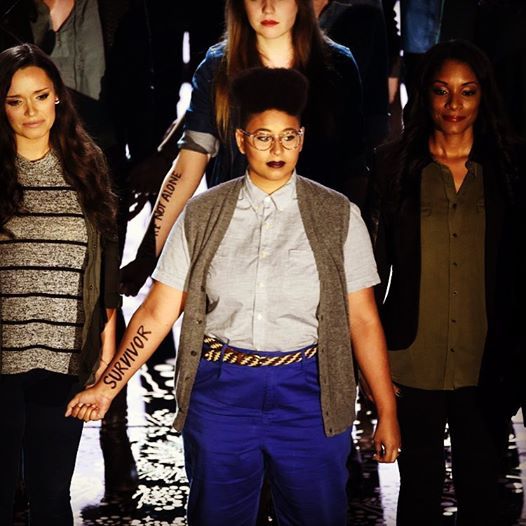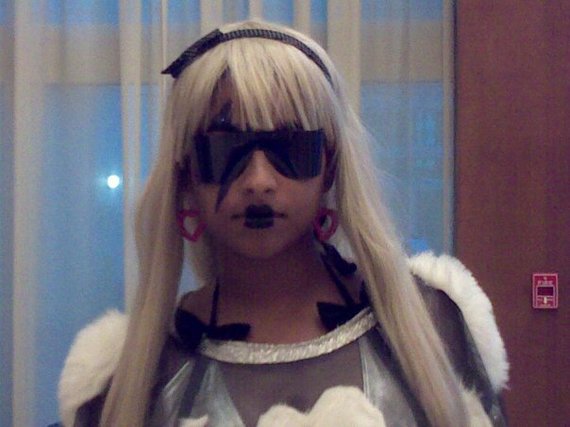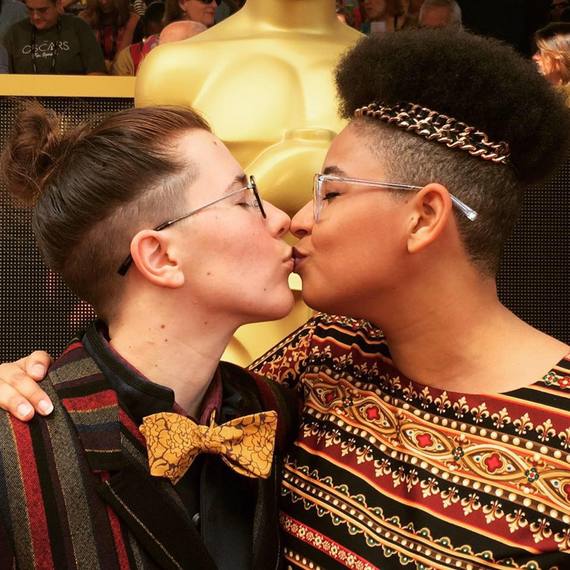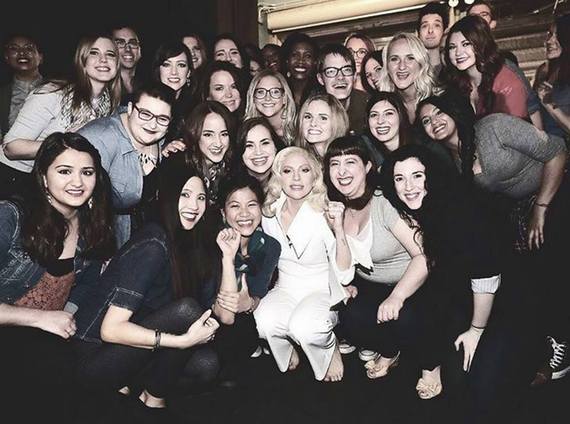
I was finally in bed at 3 a.m. trying to fall asleep when I got the email:
"CONFIDENTIAL -- ACADEMY AWARDS Opportunity"
I opened it immediately.
"Exciting news! Lady Gaga has invited you all to join her on-stage at the Academy Awards to stand together as she performs her Academy Award-nominated song 'Til It Happens to You.'"
I was invited to participate because the documentary The Hunting Ground -- for which the song was written -- had featured my activism and personal experience with sexual assault. I was overwhelmed with emotions:
1. It had been a dream of mine since I was a child to attend the Academy Awards. I was a child actor, joined the Screen Actors Guild around age four, and watched the Oscars every year. Although this was not how I imagined it happening, this was a dream come true.
2. I have been a huge fan of Lady Gaga since 2008 when her music first came out and I dressed up as her for Halloween.
3. All I have been hearing about the Academy Awards is #Oscarssowhite; in fact I have participated in tweeting and tumbling about #Oscarssowhite since one of the things that infuriates me the most as an independent media creator is the way the media celebrates hetero-white mediocrity while erasing or tokenizing the rest of us.
4. While The Hunting Ground brought a lot of attention to the issue of sexual assault, its depictions of survivors' stories felt tokenizing and upheld stereotypes of rape that alienate many survivors. How would this performance be any different?
I debated whether or not I should go; whether my appearance within this performance would also be tokenizing and uphold the idea that the Oscars and media depictions of rape are "more diverse" than they often are. My parents told me I was being ridiculous; obviously I had to go. And the reality is that I wanted to give myself this experience, but not to let my expectations get too high. I was excited that my fiancee was also invited to attend and thought it would be a once-in-a-lifetime experience to have together.
Upon arriving at Dolby Theater a few days before the show for our first rehearsal, I saw a large crowd of people, and found out there would be 51 of us participating. I saw friends, people I knew online but had never met in person, activists and artists I had admired from afar, and friendly strangers. There were men, women, genderqueer and trans* people of many races. I was shocked. It wasn't until we were all in one room waiting for rehearsal that it really hit me that this was the largest group of survivors I had ever been around. Our backgrounds and experiences were diverse in a way that felt authentic and pluralistic, not tokenizing. Yet there was almost an immediate sense of understanding.
As I got to know the different survivors I was astounded by their passion, empathy and brilliance. What united us all were experiences of violation and the willingness to speak up about it. What was most powerful was that we made few assumptions about anyone else's experience. The context and unique betrayals surrounding each survivor's experience are their own, but the themes of trauma, and trust; healing and the many forms of activism were where we found plenty of common ground. I didn't feel judged, or questioned. And that means a lot. Multiple people asked me what gender pronouns I go by (they, them, theirs by the way). To me, meeting these survivor activists, getting to know them, and bonding (including getting matching tattoos!) was the highlight of my weekend.
There were also moments of tension, like the numerous times people working on the performance or the show referred to the group as "ladies" or "girls" despite our continued protest that these labels did not represent us as a group, and honestly made many of us uncomfortable. I don't think people even realized what they were saying, and although some tried to shift their language, it was obviously awkward and unnatural. They were very affirming and supportive of us (much more so than many administrators at our universities), but I bring this up to say that this language is the norm when discussing sexual assault. With this, a crime of power implicitly becomes a "women's issue." This contradiction manifested in my life when I started doing activism around sexual assault, and another black campus activist confronted me saying I was dealing with a "white woman's issue" despite the fact that women of color are twice as likely to be assaulted. Even when Vice President Joe Biden made his speech and spoke to us afterward he continued to use this gendered language, as well as implying that all perpetrators are men. That "boys" and "guys" take advantage of "girls" and "ladies." But both my partner and I were assaulted by women. And while I think an analysis of masculinity is necessary in discussing rape culture, I think simplifying language that implies one universal rape narrative distances far more survivors than it unifies.

Nastassja on stage at the Academy Awards
LGBTQ students are twice as likely to experience sexual violence than heterosexual students. Rates of domestic violence are also higher within the LGBT community, but less reported. Narrow legal definitions used in some universities and states make it particularly difficult for queer and gender non-conforming survivors to seek justice; from defining only vaginal penetration as rape to directly excluding same sex assault. This is why the gendered language was so triggering as it was used over and over again. It is this framework that makes it harder for us to come forward or be believed.
Historically, sexual violence has also been used as a widespread tool of power and genocide against people of color as well as queer people, so the dueling activist narratives of sexual assault awareness, LGBT visibility, and #oscarssowhite around the Oscars also left me as a queer person of color with the feeling that some potential to name the huge ways these issues overlap was being missed. It's time to stop siloing our movements; to develop a language and framework to name the ways violence operates interpersonally and structurally along the lines of identity and power in society. Yes, #oscarssowhite. Yes, #oscarssostraight. Yes, #itsonus, and yes #tilithappenstoyou, you won't know how it feels. But some of us- many of us- are affected by all of these issues and are tired of having to pick a single issue on any given day depending on what's trending.


